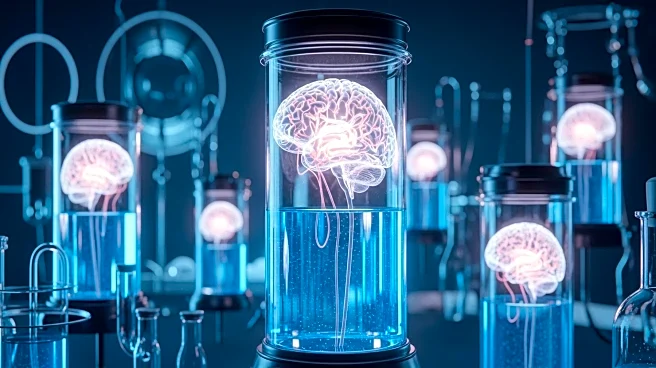What's Happening?
A recent poll conducted by Live Science reveals public uncertainty regarding the ethical implications of experimenting on lab-grown brain organoids, which may become conscious in the future. Brain organoids are used to study brain development and diseases, but as they become more sophisticated, ethical concerns arise about their potential consciousness. The poll shows divided opinions, with some respondents supporting new regulations to protect organoid welfare, while others oppose experimentation on conscious organoids altogether. The debate highlights the need for preemptive ethical and regulatory frameworks in scientific research.
Why It's Important?
The development of brain organoids raises significant ethical questions about the treatment of potentially conscious entities in scientific research. As organoids become more complex, the possibility of consciousness challenges existing ethical standards and necessitates new regulations. This issue impacts the scientific community, policymakers, and society, as it involves balancing scientific advancement with moral considerations. The debate also reflects broader concerns about the implications of artificial intelligence and biotechnology on human rights and ethical standards.
What's Next?
The scientific community may need to establish new ethical guidelines and regulatory frameworks to address the potential consciousness of brain organoids. This could involve collaboration between scientists, ethicists, and policymakers to ensure responsible research practices. Public engagement and education on the topic may also be necessary to address concerns and inform policy decisions. As research progresses, ongoing monitoring and adaptation of ethical standards will be crucial to navigate the complexities of biotechnology and artificial intelligence.
Beyond the Headlines
The ethical debate surrounding brain organoids highlights broader issues related to the treatment of non-human entities and the moral boundaries of scientific research. It raises questions about the value of consciousness and the rights of artificial entities, challenging traditional ethical frameworks. The discussion also reflects societal concerns about the impact of technology on human identity and the potential for exploitation in scientific research. These issues underscore the need for interdisciplinary approaches to address the ethical challenges posed by emerging technologies.









